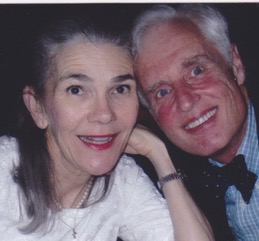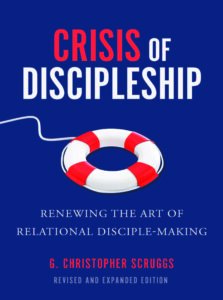In his great work, Lord of the Rings, JRR Tolkien describes the return of Aragon, the king of Gondor. Before entering the city, he fights a great battle outside its walls against the servants of the evil Sauron. The weapons of Sauron are incredibly destructive. As the wounded and weary are brought into the city, an old woman cries out,
Would that there were kings in Gondor, as there were once upon a time, they say! For it is said, in old lore, the hands of the king are the hands of the healer. And so the rightful king shall be known. [1]
And so as the rightful king, Aragon, enters the city, full of wounded and weary souls, Gandalf, the Wizard, proclaims:
Let us not stay at the door, for the time is urgent. Let us enter! For it is only in the coming of Aragon that any hope remains for the sick that lie in the House. Thus spoke Iorith, the wise woman of Gondor: The hands of the king are the hands of the healer, and so shall the rightful king be known. [2]
 In The Fellowship of the Ring, the first book of The Lord of the Rings, we are introduced to Aragon of Arathorn, a ranger—a solitary soul—a man condemned to work at the fringes of civilization, fighting the forces of Sauron from the shadows in obscurity. Bilbo Baggins is at first afraid of Arathorn. In the end, he is revealed to be a king—the true king of Gondor.
In The Fellowship of the Ring, the first book of The Lord of the Rings, we are introduced to Aragon of Arathorn, a ranger—a solitary soul—a man condemned to work at the fringes of civilization, fighting the forces of Sauron from the shadows in obscurity. Bilbo Baggins is at first afraid of Arathorn. In the end, he is revealed to be a king—the true king of Gondor.
Our Unrecognizable Messiah.
The story the Bible tells is not very much different. There was once a rabbi who had incredible powers of teaching, healing, and exorcism. To those who knew him, to the crowds, he didn’t seem like the Messiah for whom they were looking. He was not from an influential family. He wasn’t a lawyer. He wasn’t a politician. He wasn’t a member of the military establishment. He wasn’t even part of the religious establishment. He was an outsider. Yet, when the people heard him preach and saw his mighty acts, they would exclaim, ‘Who is this man?’ In Mark, the crowds ask
“What is this? A new teaching—and with authority! He even gives orders to impure spirits, and they obey him (Mark 1:27).
They could not recognize this Messiah but knew Jesus of Nazareth was no ordinary person.
The Human Condition
The Jewish people believe that we human beings suffer from poor health and physical, spiritual, mental, and emotional illnesses as a result of sin—as a result of the fact that we are not in a state of peace with God, nature, others, or with ourselves. This lack of shalom infects our happiness and the stability of human society. It is a sickness of the soul.
Jesus warned his disciples,
Do not be afraid of those who kill the body but cannot kill the soul. Instead, be afraid of the one who can destroy both body and soul in hell (Matthew 1028).
Jesus’s healings were, as the New Testament reminds us, signs that he is the rightful Messiah, the Anointed One who can and will deliver us from the greater ill of our alienation from God, others, and ourselves. Jesus was the fulfillment of the prophetic voice recorded in Isaiah:
He grew up before him like a tender shoot and like a root out of dry ground. He had no beauty or majesty to attract us to him, and there was nothing in his appearance that we should desire him. He was despised and rejected by mankind, a man of suffering and familiar with pain. Like one from whom people hide their faces, he was despised, and we held him in low esteem. Yet, surely he took up our pain and bore our suffering, yet we considered him punished by God, stricken by him, and afflicted. But he was pierced for our transgressions; he was crushed for our iniquities; the punishment that brought us peace was on him, and by his wounds, we are healed (Isaiah 53:2-5)
The message that the Messiah will be a healer is part of what scholars call the “Servant Songs.” Over and over, Isaiah refers to one who is to come and who will be a faithful servant of the Most High. Some scholars believe these prophecies were intended to refer to Israel, but the church has always believed they referred to Jesus Christ.
Why is this Jesus of Nazareth our Messiah?
 This weekend, we celebrate the central act in the Divine Drama of the Bible, the conclusion of the story of the Messiah God sent not just for the Jews but for all people. It is good to remember the character of this Messiah.
This weekend, we celebrate the central act in the Divine Drama of the Bible, the conclusion of the story of the Messiah God sent not just for the Jews but for all people. It is good to remember the character of this Messiah.
First, the Messiah entered into our human condition. Isaiah says, “He grew up before him like a tender shoot like a root out of dry ground” (53:2). There was an old Jewish proverb, “Can anything could come out of Nazareth?” (John 1:46). Galileans like Jesus, were considered to be uncultured rural hillbillies. Jesus’ father was a carpenter. He was conceived out of wedlock. This is cultural “dry ground” as far as the Jews are concerned. If Jesus had been born in Jerusalem, the son of a high priest or a wealthy family, say the family of Caiphus, the high priest, well, it might have been reasonable to consider him Messiah. But that was not the case.
Second, the Messiah entered our physical limitations. Jesus, Isaiah 53 goes on to say, “had no beauty or majesty to attract us to him, nothing in his appearance, that we should desire him (53:2). David, the great king of Israel, is described explicitly to us, is having been handsome. (I Samuel, 16:12). If Jesus had been extraordinarily physically beautiful, it might have been easier to accept him as a Messiah. But he wasn’t. He was just an ordinary looking person—maybe a bit like Jethro Clampett in The Beverly Hillbillies.
Third, the Messia experienced all our human problems. Isaiah says, “He was despised and rejected by men, a man of sorrows, and familiar with suffering. Like one from whom men hide their faces, he was despised, and we esteemed him not” (53:3). It was the Jewish expectation that the Messiah would go from victory to victory, but this Jesus of Nazareth did not. His life was one of rejection and pain. He was not always victorious, respected, esteemed, and put in leadership positions. He failed, was disrespected by the leaders of the people, and rejected by the nation. It didn’t make any sense to the Jews that God would send such a Messiah. This was Messiah, who identified with ordinary people, with ordinary limitations, abilities, and the ordinary suffering of human life.
Most Americans desire to live in constant health and happiness. As a result, we also don’t want a Messiah who suffers, is rejected, is in pain, and ultimately dies. We want a Messiah born of a fine family who lives a life of glowing popularity and success. If we returned today, we would be just like the Jews of Jesus. We would not want a Messiah without affluence, physical attraction, success, and nobility.
That kind of Messiah is not the Messiah who came to Israel; it is not the kind of Messiah who will come to us. Our Messiah suffers what we suffer. Our Messiah enters our human condition and shares it. Our Messiah suffers with us and with the world. Our Messiah is the one who dies in our dying and rises again in our rising. Fortunately for us, our Messiah assumes our problems, who “is pierced for our transgressions, crushed for our iniquities, and suffers the punishment that we so richly deserve (v. 5).
Our Healing Messiah
Isaiah 53 reveals that the wounds of the true Messiah will heal us. This is the Messiah we so often reject. There in Isaiah, we have, in miniature, written centuries before the birth of Jesus of Nazareth, the gospel’s message: It is by the life and death of Jesus Christ that our healing can be accomplished. Our sins, shortcomings, and physical and emotional ills can be healed based on his life, death, and resurrection. “By his stripes, we are healed.” Our healing is accomplished based on the work of another – based on the suffering of God in Human Flesh. What we cannot do and never could do, God does. This is the good news of the gospel.
In Lord of the Rings, Aragon heals the man he will replace as leader of the people. When Faramir awakes, he says, ‘My Lord, you called me. I come. What does the King command?’ Aragon replies, ‘You are weary. Rest a while, and take food, and be ready when I return.” The woman beside Faramir exclaims
King? Did you hear that? What did I say? ‘The hands of the healer I said.’ And soon the word had gone out from the house that the king was indeed come among them, and after the war he brought healing; and the news ran through the City.[3]
The hands of the king are indeed the hands of a healer. Perhaps you know someone who needs healing. Be of good cheer; the hands of the Messiah are the hands of a healer. Perhaps your family needs healing. Be of good cheer; the hands of the Messiah are the hands of a healer. Perhaps your business or your country needs healing. Be of good cheer; the hands of the Messiah are the hands of the healer.
Let us enter this Easter Season welcoming the one who suffered for our salvation.
[1] J.R.R. Tolkien, The Return of the King (New York, NY: Ballentine Books, 1965), 166.
[2] Id, at 169.
[3] Return of the King, 173.





